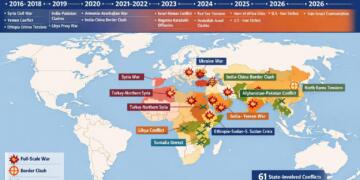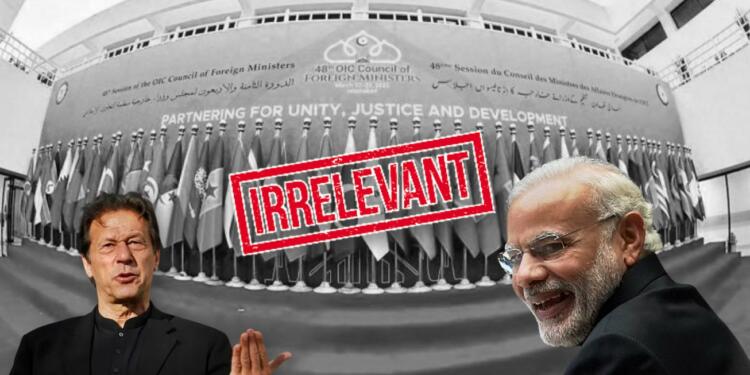The relationship between India and the Organisation of Islamic Cooperation (OIC) represents sheer acrimony and irritation over unwarranted interference by the OIC in India’s internal matters.
India has therefore decided that it has had enough. It has pushed the Islamic organisation to the point of irrelevance by effectively deciding the intergovernmental body two times in quick succession. How did this unfold? Let’s find out.
India and OIC- an acrimonious history
India and the OIC have had a troubled relationship since 1969 when the Islamic organisation was founded.
The OIC was originally an Arab initiative. However, with the aid of Saudi Arabia and Morocco, Pakistan muscled its way into the OIC.
Once Pakistan stepped into the Islamic organisation, the intergovernmental body could never coordinate with India. Islamabad has made it a habit to push its Kashmir agenda in the OIC. Pakistan brought 19 resolutions at the OIC till 2019, most of them related to Kashmir. Apart from Kashmir, the Islamic organisation has also been generally critical of the Indian Government.
Read more: Modi Government is all set to change the course of development in Jammu and Kashmir
Pakistan doesn’t let OIC improve its India approach
Meanwhile, Islamabad also shoots down any attempt to placate New Delhi. In 2002, Qatar proposed observer status for India in the OIC, but Pakistan torpedoed the move.
In 2018, Bangladesh proposed an amendment in the OIC charter to include non-Muslim countries like India. But again, there was no development on this front.
Again, in 2019, India was invited as a “guest of honour” for participating in the 46th session of the Organisation of Islamic Cooperation. This showed some hope that the OIC was changing itself according to changing times and deepening Arab-India ties.
However, it seems that we are back to square one. Recently, the OIC issued a statement about Jammu & Kashmir, asking India to revoke the changes made to Jammu & Kashmir in 2019. And this is exactly why India has run out of patience with the OIC.
OIC doesn’t exist for India
In fact, India is gradually making it clear that the OIC is irrelevant and doesn’t hold any significance in New Delhi’s diplomatic priorities.
When the OIC introduced a resolution at the UN General Assembly to declare March 15 as International Day to Combat Islamophobia, India gave it a cold shoulder.
India’s Permanent Representative to the UN Ambassador T S Tirumurti said that India hoped that the resolution adopted “does not set a precedent” which would lead to multiple resolutions based on select religions and effectively divide the UN into many religious groups.
Read more: With its stand against the UN’s resolution on Islamophobia, India is giving voice to the voiceless
Tirumurti said, “Hinduism has more than 1.2 billion followers, Buddhism more than 535 million and Sikhism more than 30 million spread out around the world. It is time that we acknowledged the prevalence of religiophobia, rather than single out just one.”
Gloves however came off after the Islamic organisation made a controversial statement about India’s Union Territory of Jammu & Kashmir.
Slamming the OIC statement, Ministry of External Affairs spokesman Arindam Bagchi said, “The statements and resolutions adopted at the meeting demonstrate both the irrelevance of the Organisation of Islamic Cooperation as a body and the role of Pakistan as its manipulator.”
The spokesman added, “References have been made to India that are based on falsehoods and misrepresentation. The absurdity of this body commenting on the treatment of minorities, that too at the instance of a serial violator of human rights like Pakistan, is so evident. Nations and Governments that associate themselves with such exercises should realise the impact it has on their reputation.”
India is thus very clear about it- OIC is irrelevant. It has not stood the test of time and the evolving character of Indo-Arab world relations. In fact, it is hijacked by Pakistan and has diminished its own value by repeatedly trying to interfere in India’s internal matters. Now, it is for the Arab world to rework it if they want to make it seem relevant in the 21st century.

























